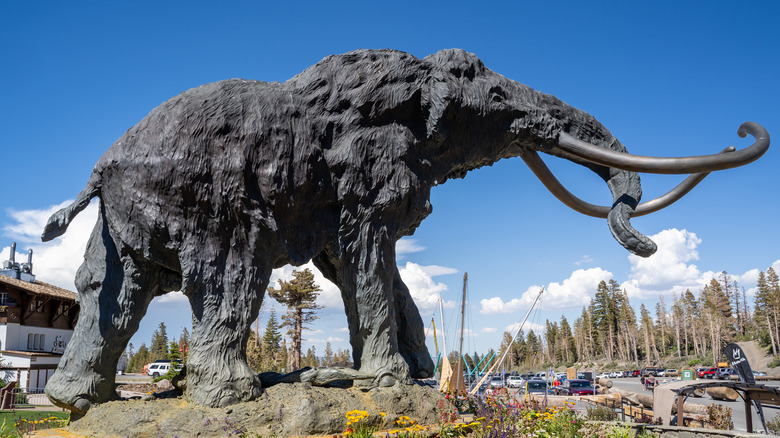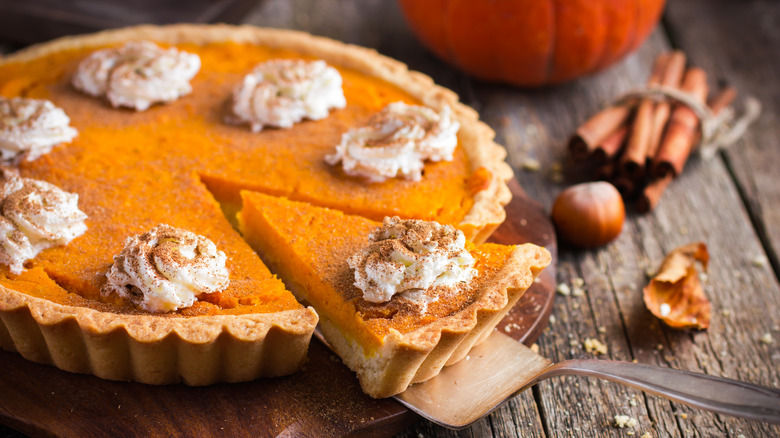Why Mammoth Poop Is The Reason We Have Pumpkin Pie
If you love pumpkin pie, you can thank the wooly mammoth. (Yes, you read that correctly.) These large, lumbering beasts arrived in North America more than one million years ago, and then went extinct about 11,000 years ago, according to the Illinois State Museum. In other parts of the world, small populations of wooly mammoths were still in existence until around 3,700 years ago.
Today, the mammoth's closest living relative is the Asian elephant. Fewer than 50,000 of these beautiful animals are alive today, according to the International Elephant Foundation. Interestingly enough, scientists are now experimenting with mammoth and Asian elephant DNA in an effort to strengthen the species and bring it back from the brink of extinction.
Because mammoths thrived in colder temperatures, according to The Guardian, a mammoth-elephant hybrid could help the Asian elephant population withstand climate change. As an added bonus, the hybrid pachyderm could help restore the Arctic tundra. Speaking of massive changes to vegetation, let's return our attention to pumpkin pie.
Mammoths helped spread gourd seeds
During the wooly mammoth's reign, gourds were a lot smaller than they are today and featured a bitter taste. This bitterness kept most animals from eating the gourds, in fact, but the Smithsonian says mammoths didn't register the bitterness, nor were they affected by gourd toxins. The gourds simply didn't contain enough toxins to cause the gentle giants any harm.
As the mammoths migrated, they brought the gourd seeds with them — in their digestive tracts. When mammoths went extinct, seed dispersal and cultivation fell to humans. Because humans have much more sensitive taste, according to Proceedings of the National Academy of Science, gourds were selectively bred for size and sweetness.
These larger, sweeter gourds today include squash, melons, cucumbers, and — you guessed it — our beloved pumpkins. Without the mammoths spreading seeds across the continent and forcing gourds to dramatically evolve, your Thanksgiving pie probably wouldn't taste too good.

